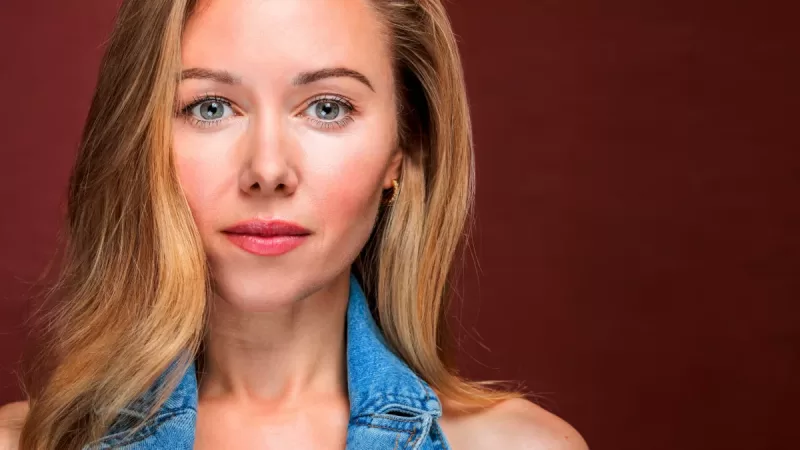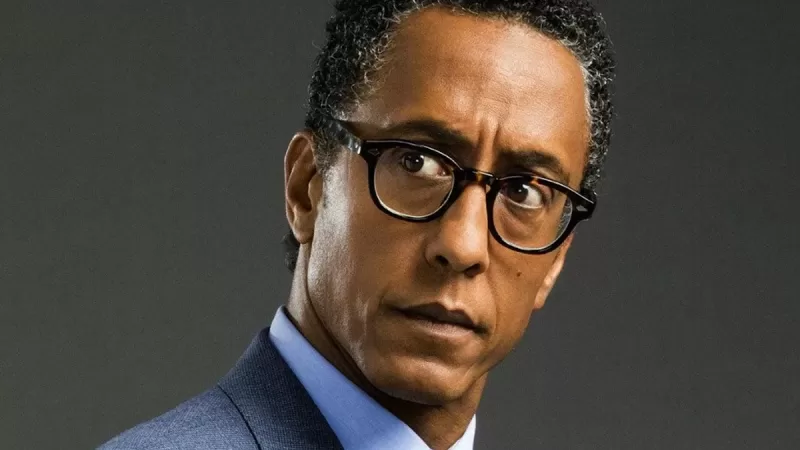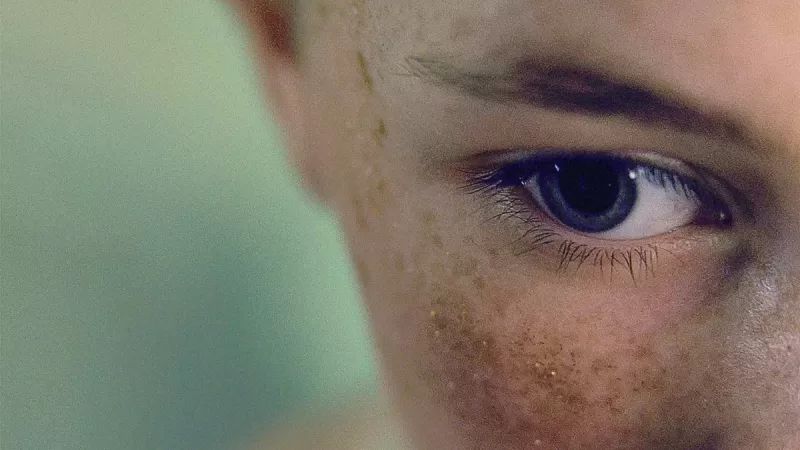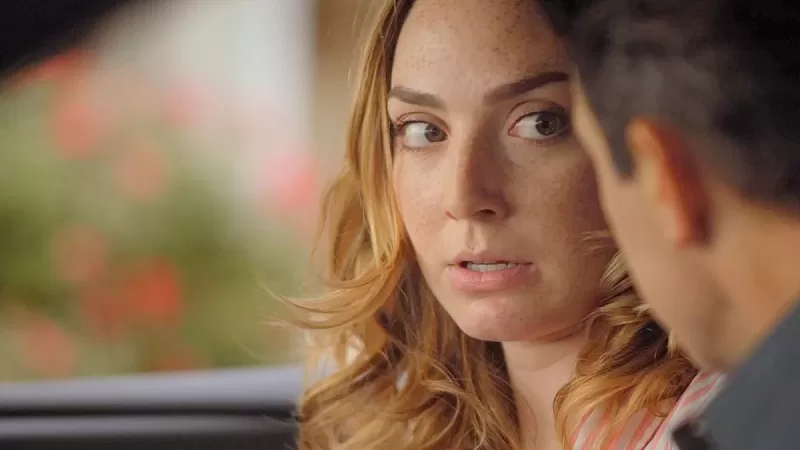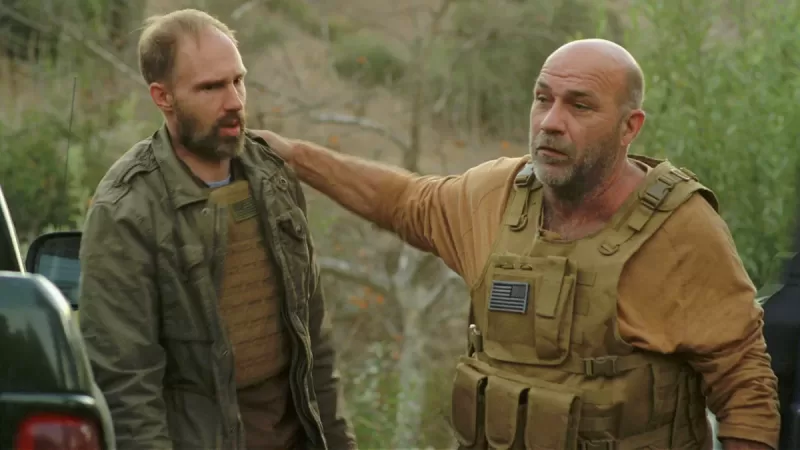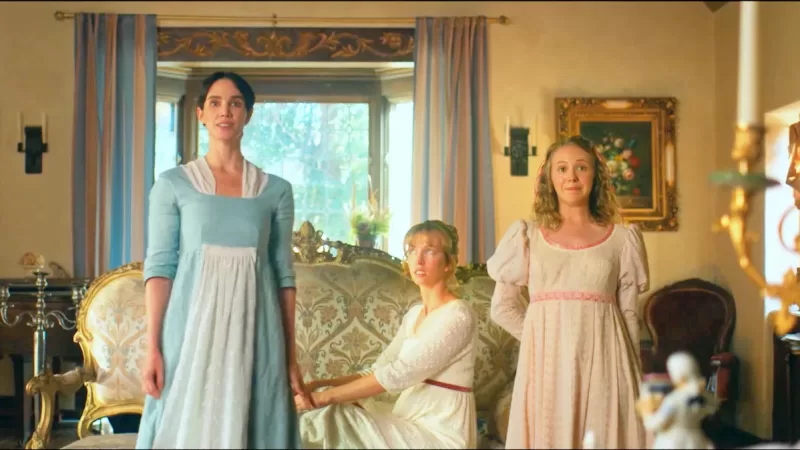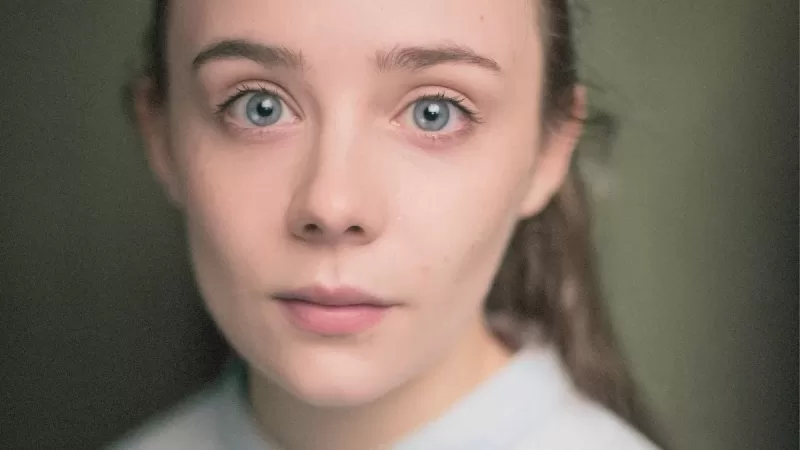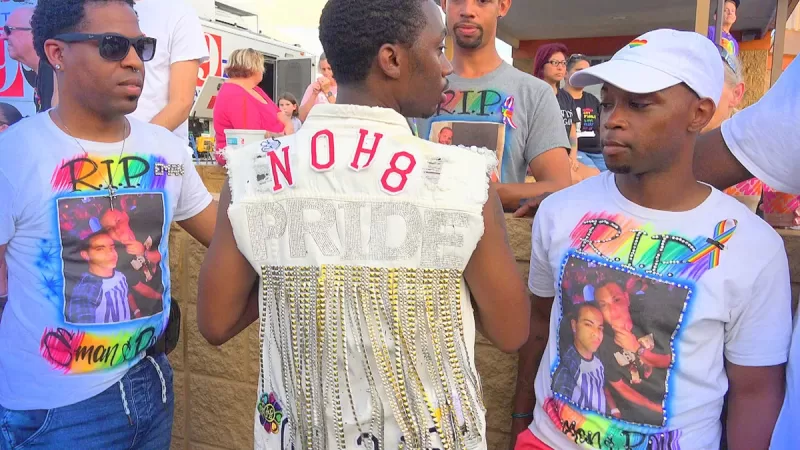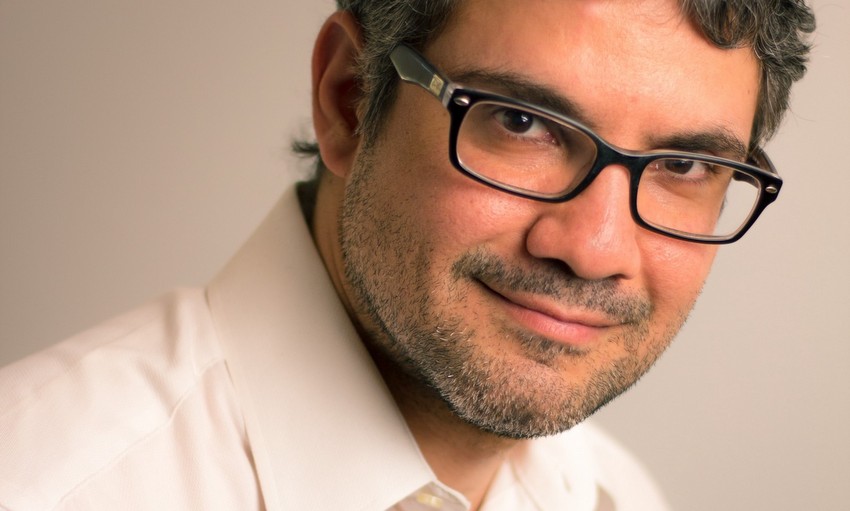
Roberto Saieh was born and raised in Barranquilla, Colombia where he had his own production company prior to coming to USC. Passionate about indie dramas, he’s drawn to stories about broken people piecing themselves back together. Roberto is a two-time PAGE Awards winner with a short and a dramatic feature.
indieactivity: Give a background of your personal experience with the story, writing, production and marketing
Roberto Saieh: The film was born from Andrew’s experience with a spinal cord injury and his amazing recovery after being told he would never walk again.
The way I came onto the project was that Andrew had an early draft of the script and was looking for a writer to come on board and take it from there. I thought the script had great potential. The characters, the story, Marquise’s anguish and grief were all very real and something you could empathize with, regardless of whether or not you’ve ever been in Marquise’s (or Andrew’s) shoes. Most of all, I was drawn by how personal and raw the story felt.
After reading the script, I met with Andrew and I pitched him my take on it to which he responded positively and we began working together.
For it being our first collaboration together, it was great working with Andrew. He has an incredibly sharp story sense and while we often came to the table with different priorities (as writer and director), we almost always ended up on the same page, conceding the point to one or the other. It was a very comfortable creative partnership.
In terms of the writing, the film did present its fair share of challenges during the development of the story. For one, I had to find a way to keep the story moving and interesting even though it takes place almost entirely in one location (Marquise’s hospital room) for the film’s twenty minute runtime. Also, there was the always tricky balance between accuracy and dramatization to consider.
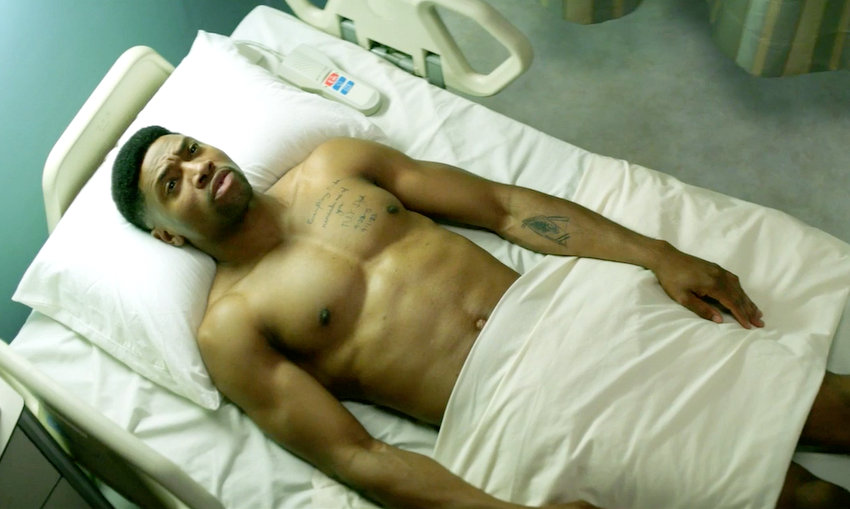
To keep the story moving, I divided Marquise’s emotional arc into very clear sections following the five stages of grief (Denial, Anger, Bargaining, Depression, and Acceptance). This gave the entire story a clear sense of progression that not only differentiated each segment from the next, but let them build on those that came before. Aside from that, to keep the narrative from becoming stale, I rotated between the three character relationships present in the story so the conflict always felt fresh (those are Marquise-Noah, Marquise-Camilla, and Marquise-Megan). Lastly, towards the middle of the narrative, a nightmare sequence breaks up the lull of the day-to-day hospital scenes.
When it came to balancing accuracy with drama, Andrew and I agreed to err on the side of being factual while making the necessary allowances for the story to work on a dramatic level, something facilitated by Andrew’s own experiences as a spinal cord injury patient.
I wasn’t involved much with the production of the film, however, I have been part of the marketing efforts by doing interviews as well as attending the premiere at the LA Shorts Fest. It’s been incredibly gratifying to be able to talk about our experiences on the project, what it means to us, and to hear first-hand how much people enjoyed the film. It’s an amazing experience, every time, to watch the film with a new audience and feel the emotions shift in the theatre in real-time.
indieactivity: Did you start writing with a cast (You or any) in mind?
Roberto Saieh: While I didn’t start writing with a cast in mind (we only started getting potential names as the script was being finalized), I did take over the existing characters Andrew had created. So, in a way, I did end up working with specific personalities in mind. Some of these remained relatively the same up to the shooting draft, for example, the occupational therapist helping Marquise with his recovery remained a straight-forward mentor with perhaps more tough love than she originally had. Other characters, like Marquise’s roommate Noah, did a complete one-eighty. Originally, Noah was very supportive of Marquise, advising him and wanting to steer him in the right direction. After I came on, he became the opposite, a cautionary tale showing Marquise what his life would be like if he didn’t make the right choice, sort of leading by counter-example.
So I did have pre-existing molds for the characters when I came onto the project, just not in the form of the actors who would play them.
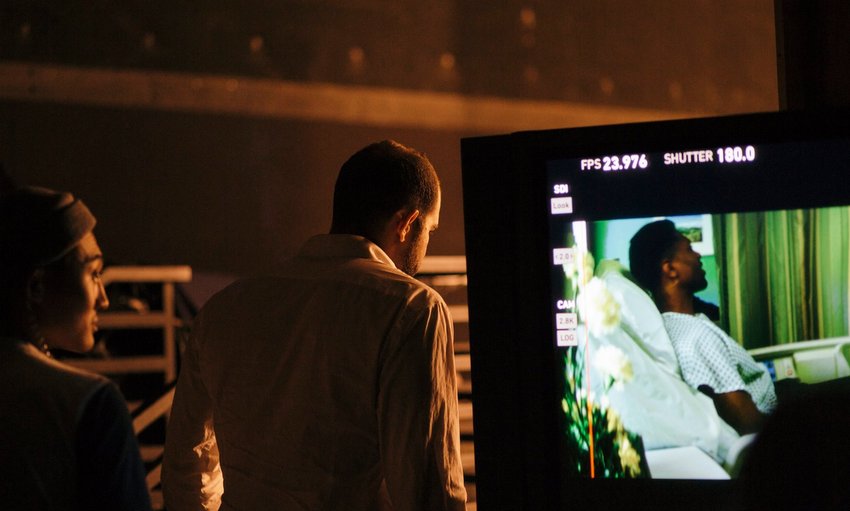
indieactivity: How long did you take to complete the script? (Do you have a writing process?)
Roberto Saieh: The script took about five or six months to complete. It seems long for a short, however, I was also working on two feature projects at the time while writing on ASIA A whenever I got the chance. Aside from this, Andrew and I went above and beyond a normally accepted number of drafts to make sure that all the pieces of the script were working in harmony, everything from the character relationships, to the pace, to balancing the accuracy and drama, especially for such a science-heavy script as this.
I do have a writing process, though I don’t feel it differs very much from the standard (of course, if there is such a thing). The first thing I do is figure out what the story is about. In this case, it was about re-defining who you are after a life-altering event, an arduous process that you have to undertake alone before you are ready to relate to others. Specifically, it meant Marquise’s entire arc was to get to the point where he was capable of rejecting Camilla- even though taking her back would be the easier road to travel- so he could first learn to be okay with himself.
Once I have a clear idea of the character’s emotional arc, I plot it over the course of the story. In ASIA A, as I mentioned above, I used the five stages of grief to show Marquise’s growth. Usually, by the time I get to this point in the development process, the story has reached a critical mass where I just have to go to pages and see what happens.
While other people are fond of the “puke draft”- writing a first draft as quickly as possible to get it out- I like to put in a little more effort into my first drafts. For me, the result is having front-loaded most of the work to where I can go back and simply rewrite in further drafts, rather than having to do the heavy lifting then. I guess you could say my drafts tend to be less exploratory and more putting to page what I already outlined to death.
Then it’s just a matter of rewriting as many times as needed until it’s done.
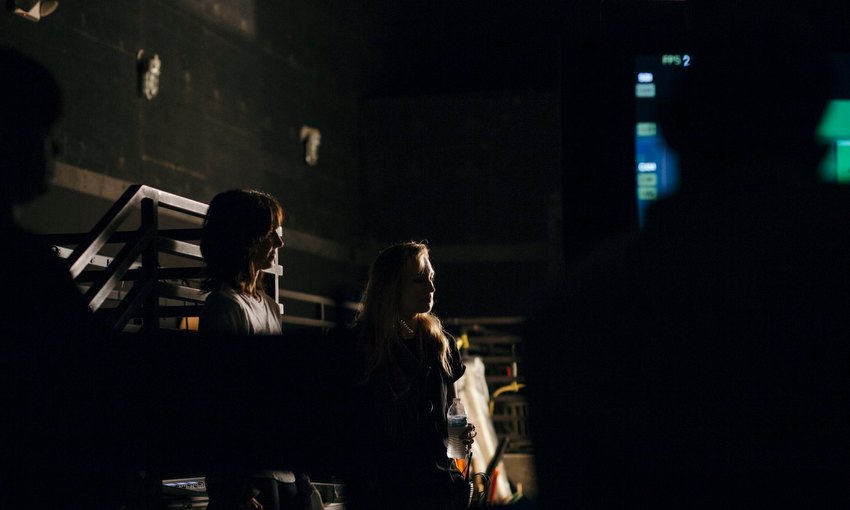
indieactivity: When did you form your production company – and what was the original motivation?
Roberto Saieh: Before I went to USC, I got my first MA in Screenwriting from California State University, Northridge in 2008. After graduating, I returned home to Colombia looking to hopefully make a living doing what I love (we should all be so lucky). So forming a production company seemed like the most logical thing to do. It was also a way to keep film alive as a family tradition.
It was my grandfather who first fell in love with film. After immigrating to Colombia in hopes of a better life, he worked for decades until he owned several theaters in town. The crown jewel of these was the Teatro Coliseo- The Colosseum- and could sit around 1,500 patrons. It was also roofless so, when it rained, people would huddle under the thin sliver of roof that kept the screen dry. I grew up listening to my father tell me stories about the theater, how moviegoers watched the films under the stars and how he used to man the doors and then slip in to catch the show. Unfortunately, I never got to meet my grandfather as he was killed in a botched mugging about ten years before I was born. The theaters were sold soon after. I named my company Coliseo Films in honor of him.
indieactivity: What was the first project out of the gate?
Roberto Saieh: The first project was “Dr. Raul Cuero: El Espíritu de la Creatividad”, a documentary short highlighting the work of Colombian scientist Dr. Raul Cuero and how he was inspiring- and teaching- the youth to be science-minded forward thinkers. It was a marathon shoot through three different cities (Bogotá, Manizales, Bucaramanga) in the space of eight days that landed us with about twelve hours of footage. As writer-producer on the project, it was my job to whittle that down to the seven minutes the short came to be. It was an arduous process but I also learned a great deal about non-fiction story-telling. From wrapping production to having a working rough cut, it probably took about a month or month and a half.
I’m very proud of the final product and the documentary ended up getting picked up for distribution by the largest theater chain in Colombia, Cine Colombia.
indieactivity: During production, what scene (that made the cut) was the hardest to shoot?
Roberto Saieh: I wasn’t involved in the production of ASIA A so I’m not familiar with the challenges during the shoot.
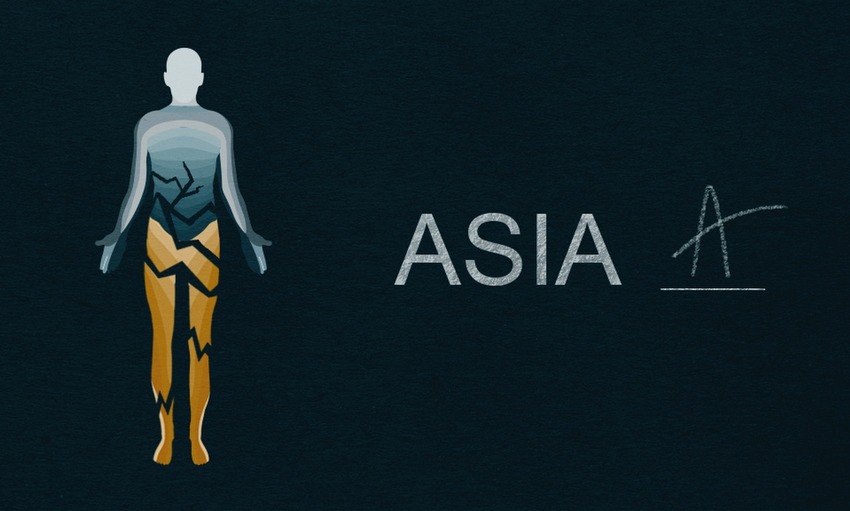
ASIA A Kickstarter Campaign
indieactivity: What works better in this latest production that mightn’t have worked in the last one you did?
Roberto Saieh: I think the communication between the writer and director was one of the high points of creating ASIA A. I spoke about it above, but it bears repeating that Andrew and I had a great working relationship. We were both respectful of the other, open to their ideas, and, where we were passionate about our own, we recognized it came from a love for the project and we always ended up doing what we felt was best for it. We were both very much in sync.
indieactivity: You wrote and acted in the film, what measure of input did it take to don these hats?
Roberto Saieh: I only wrote the film (didn’t act in it). Fortunately for moviegoers everywhere, I am not an actor so they won’t see me onscreen anytime soon.
It was definitely a new experience to work on such a science-heavy script. Andrew was very insistent in that we get the medical side right. Sometimes this was a matter of changing a detail while, other times, it changed entire plot-points or character dynamics. I remember it was a long discussion we had over how involved Marquise’s Occupational Therapist should be in his recovery, whether she should hug him for comfort even though she’s not allowed, and whether she should let Marquise’s girlfriend in against his wishes, which in reality might jeopardize her job. In the end, you just weigh the potential benefit of choosing accuracy over dramatization, and vice versa, and make the best possible choices for the story. Needless to say, we tried to err on the side of being accurate as much as possible. From a writing perspective, this was just another set of challenges to keep in mind, no different than writing around a location or a character.

indieactivity: Is there anything about the independent filmmaking business you still struggle with?
Roberto Saieh: It’s hard to make people care and believe in the project. As a writer, I’d like nothing more than to pour everything into the story, then let the project speak for itself. Unfortunately, that’s not enough in the indie world. You need to sell yourself and you need to sell the project before anyone even takes a look at the script. You have to make people care, not just about the film but its importance in the market and the zeitgeist. The project needs to be about something more than itself and you need to be able to communicate that clearly.
It’s not something I necessarily struggle with, but it’s something I’m still coming to terms with. Again, I would prefer to have the project speak for itself first before stepping in to talk about it.
indieactivity: Where do you think your strengths lie as a filmmaker?
Roberto Saieh: As a writer, I think my strengths lie in exploring the darkness of the human mind and pushing my characters to a state of raw emotion and vulnerability. I tend to take the story to places others might not be comfortable with, but that is where I thrive the most, dealing with heavy subject matters and the “unthinkables” of life. I think it takes a lot to not only write in this headspace but also find the humanity in it. And, more often than not, this humanity takes the form of levity, the impulse to laugh and make light of a situation because the other option is to cry. I think ASIA A is a great example of balancing a heavy subject matter with some humor to lessen the pain.
indieactivity: Let’s talk finance, How did you get finance for a film?
Roberto Saieh: I wasn’t involved with the producing side at all so I’m not aware of the project’s financials. While in the past I have been a producer in my own projects, I came onto this one strictly as a writer.
indieactivity: How much did you go over budget? How did you manage it?
Roberto Saieh: I wasn’t involved with the producing side at all so I’m not aware of the project’s financials.
indieactivity: How important is marketing? Do you think a project can make any dent without it these days?
Roberto Saieh: Marketing is incredibly important, perhaps to the point of being indispensable, and this includes all forms of it, from sweeping awards campaigns, to smaller, targeted strategies, to viral or grassroots efforts. Without marketing, a film would rely solely on its star power and how high-concept it is (something not every indie project can count on) as well as the spontaneous support of word-of-mouth, which is anything but reliable. In short, I feel marketing is crucial for the success of a project these days and, without it, you might as well be hoping for a miracle.
indieactivity: Can you tell us about your marketing activities on the project – and how it’s gone for you?
Roberto Saieh: As I mentioned above, the marketing activities have been mostly taking on interviews and attending the screenings and it’s been going really well. It’s a joy to see the project enter the world, to speak about it, and to see how it affects people. I’m very much looking forward to attending the HollyShorts screening.
indieactivity: What do you hope audiences get from your film?
Roberto Saieh: A couple of things. First is that I hope the film can spark a conversation on disability- which I don’t feel has gotten its due on screen- and the importance of making space for these stories as told by the people who lived them.
Second, ASIA A has a great message that I think many of us need to hear. Oftentimes, we find ourselves in situations where we know what the right thing for us to do is but we’re too afraid to follow through. Instead, we rely on crutches to get by, be those people, objects or behaviors. ASIA A is a bit of a reminder to fight for ourselves and not be afraid to stand on our own (no pun intended).
indieactivity: What else have you got in the works?
Roberto Saieh: We’re well in development on the feature version of ASIA A. I have completed a draft and am currently discussing with Andrew where we want to take the story. It’s tremendously important to us that the message we want to communicate is clear. When dealing with something as multi-faceted as disability, there are many different points of view you’d like to address- some diametrically opposed- and you need to do them all justice.
Follow Roberto Saieh on Social Media
Website
IMDb
Facebook
Vimeo
Twitter
LinkedIn
Escape by Howard J. Ford stars Sarah Alexandra Marks from Saban Now Out on VOD
Actress Sarah Alexandra Marks stars of a Saban action/thriller titled Escape
Andre Royo to Deliver Keynote Address at Beyond Hollywood Int’l Film Festival Awards Night
Andre Royo is at Beyond Hollywood Int’l Film Festival Release April 28th, 2024
CLODAGH Directed by Portia A. Buckley is an Official Selected Short at Cleveland
CLODAGH has been selected for the prestigious Cleveland International Film Festival
Stargazer by Alan McIntyre. A Spellbinding Tale of Science, Seduction and Betrayal Debuts April
Stargazer Gets Digital Debut for North American VOD Platforms and DVD on April 30, 2024
Day Labor by R. Ellis Frazier, Action Thriller Gets May Release
Freestyle Digital Media Acquires Action Thriller “Day Labor” For May Release
Jane Austen’s Period Drama Wins Audience Awards at Cleveland International Film Festival
Julia Aks and Steve Pinder’s Whimsical Comedic Short Wins The Audience Choice Award
Thomasin Lawson, Joins Honor Swinton-Byrne and Greta Bellamacina on “All Five Eyes”
Alta Global Media on board to Executive Produce the US/UK Co-Production
Exclusive Interview with Aleesha Yates on Feature Documentary, “Surviving Pulse”
Aleesha Yates is a driving force behind making “Surviving Pulse: Life After a Mass Shooting” feature doc.

